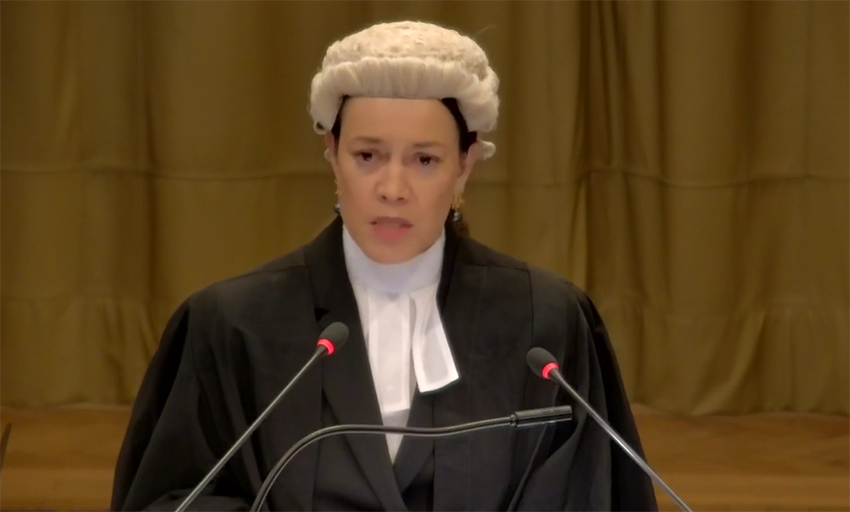Exeter Fellow Professor Philippa Webb addresses landmark ICJ climate change hearing

Professor Philippa Webb addresses the International Court of Justice
Professor Philippa Webb, Exeter Fellow by Special Election and Professor of Public International Law at the Blavatnik School of Government, addressed the UN’s International Court of Justice last week.
Professor Webb was speaking on behalf of the nation of Tuvalu at a landmark climate change case, which was considering what countries worldwide are legally required to do to combat climate change and help vulnerable nations fight its devastating impact. After years of lobbying by island nations such as Tuvalu, the UN General Assembly asked the ICJ last year for an opinion on “the obligations of States in respect of climate change.”
Professor Webb reminded the ICJ hearing that many island nations are at risk of catastrophic harm because of the effects of climate change, adding that “without drastic measures of adaptation, [Tuvalu] is expected to be one of the first to be lost to forces rendering it uninhabitable and eventually submerged.” Professor Webb went on to say “This extreme circumstance triggers all the tools that international law provides for respecting statehood, ensuring territorial integrity, and protecting sovereignty over natural resources” and warned that “Tuvalu will not go quietly into the rising sea”.
In all, 96 countries and 11 international organisations spoke in The Hague-based court. Countries including Tuvalu, Chile and the Philippines want countries such as the United States, China and Russia to reduce their emissions and provide financial help to alleviate the devastating impact of climate change that they feel endangers their very existence.
Fifteen judges from around the world will now consider the oral and written submissions. At the end of the two-week-long hearing, the court posed a series of questions to the participants who have until the end of the year to reply. An advisory opinion is expected from the court during 2025.
An opinion, being advisory in nature, cannot directly force high-emitting nations into action to help more vulnerable countries. Yet it would be more than just a powerful symbol since it could serve as the basis for other legal actions, including domestic lawsuits.
You can watch Professor Webb address the court online, one hour, 58 minutes and 30 seconds into the recording.
For other Exeter College news related to sustainability click here.
